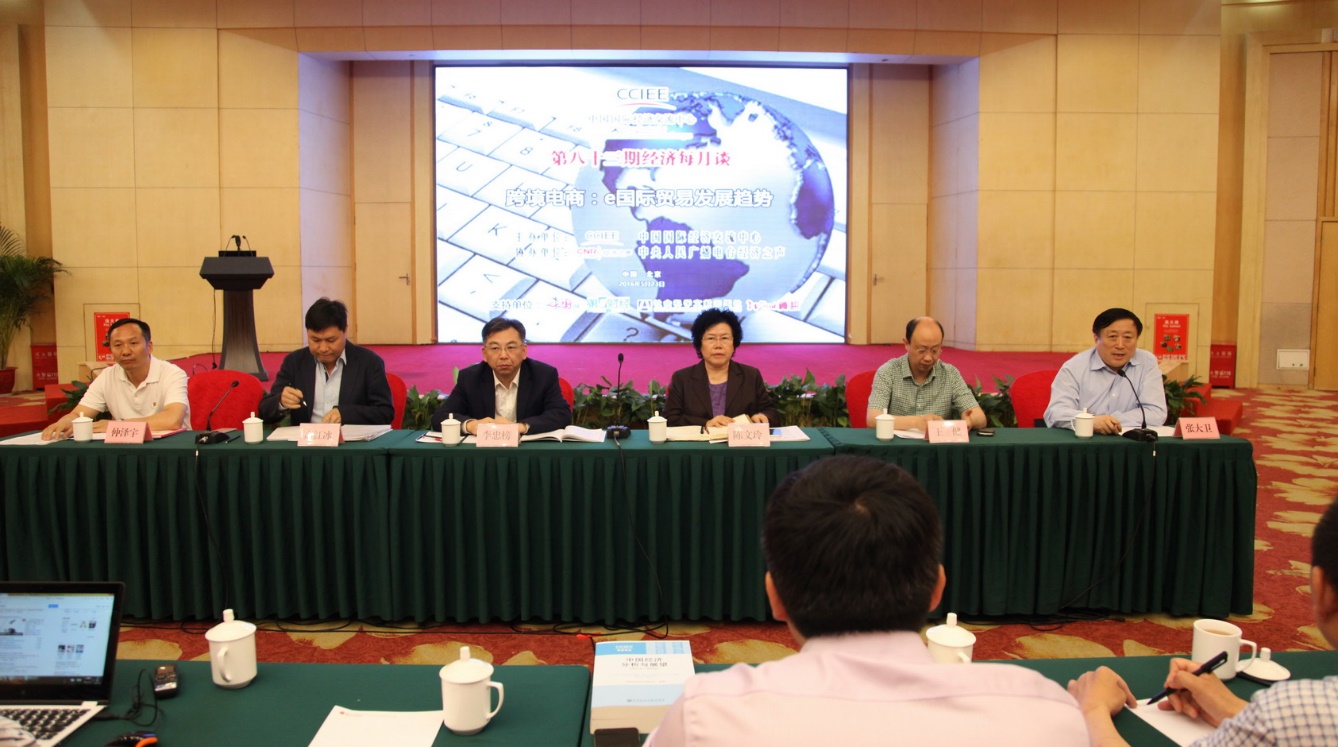CCIEE Holds the 83rd Monthly Economic Talk
- Time:2016-05-23
- source:CCIEE
On 23 May 2016, CCIEE held the 83rd Monthly Economic Talk on the theme of “Cross-Border E-Commerce: Development Trend of E-International Trade”. Mr. Zhang Dawei, Vice Chairman, Secretary General and Deputy CEO of CCIEE, presided over the talk. Madam Chen Wenling, Chief Economist and Assistant CEO of CCIEE, Mr. Zhong Zeyu, Deputy Secretary General of CATIS, Mr. Li Zhongbang, Director General of Henan Entry-Exit Inspection and Quarantine Bureau, Mr. WangJian, Director and Professor of International Commerce Research Center, UIBE, and Mr. Gao Hongbing, Vice President of Alibaba Group and President of Ali Research Institute, gave a speech respectively.

Chen wenling believes that cross-border e-commerce itself and as a platform is a kind of institutional innovation. It will help dilute the impact of protectionism, improve the efficiency of flow capacity in China, attract the backflow of consumption and achieve a win-win result for both consumers and government. It will also help rebuild the international trade rules and dominate the discourse power of international trade. It is therefore suggested that new thinking, manner and management are required for the development of cross-border e-commerce, and supervisions should be adapted to this change for the sake of the industrial development space.
Zhong Zeyu analyzes the historical background of cross-border e-commerce and believes that it has opened a new model of economic production activity. China has advantages in this area and should play a leading role in this round of reform. He points out that the current functional mechanism, which has many deficiencies, can’t meet the requirements of new industrial development, and the reform should be jointly driven starting with the institution and mechanism.
Li Zhongbang indicates that cross-border e-commerce has already become one of China’s national development strategies. The introduction of new policy on cross-border e-commerce demonstrates the government’s thinking on the development strategy of the industry. Its development depends on export enlargement, import optimization and a equitable competition environment.
Wang Jian thinks that the better development of cross-border e-commerce hinges on the following three factors. Firstly, China should adopt global practice with its taxation system, setting the tax exemption limit and introducing single-tax system. Secondly, China should strengthen supervision coordination within public sectors and between public sectors and private sectors to avoid discordance. Thirdly, China should absorb the experience and data from cross-border e-commerce pilot cities and establish a supervision way that ensures cross-border e-commerce will be conducted in accordance with the development trend of trading system with universal benefit.
Gao Hongbing believes that cross-border e-commerce retail will be the fundamental form of future international trade, and it shouldn’t be defined and managed with the old mind-set and system. What’s behind the new policy of cross-border e-commerce is the different understandings of new type of business and old one. Different perspectives and standpoints will lead to different results. The supervision on cross-border e-commerce should be moderate and reasonable and leave room for exploring suitable routes for China's consumption and industrial upgrading.
